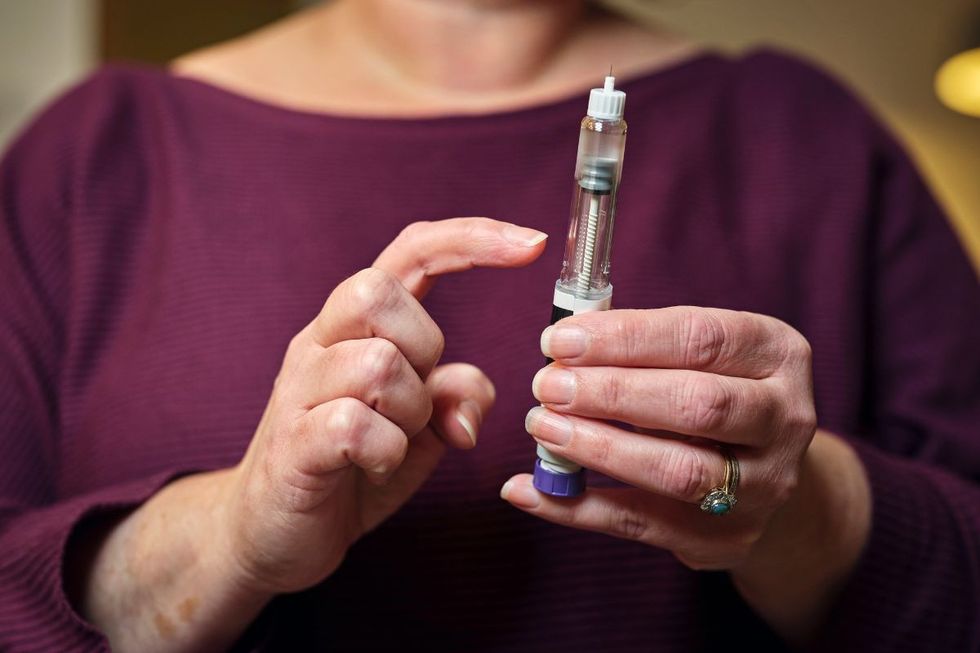Cancer concerns spark warning over weight loss injections amid alarming findings

NHS Scotland launches AI trial to help detect lung cancer and strokes in X-rays |
GBN

The warning comes amid growing concern among patients about potential risks
Don't Miss
Most Read
Latest
Cancer patients are being urged to consult medical professionals before using weight-loss injections, following a significant increase in enquiries to Macmillan Cancer Support's helpline.
The charity reported "a noticeable increase" in calls and "a flurry of messages" on its online community platform about these medications, according to Macmillan's national clinical advisor, Dr Owen Carter.
The surge in queries comes after recent media coverage about weight-loss drugs, with patients expressing concerns about potential risks, including interactions with cancer treatments.
Macmillan has cautioned against viewing these medications as "quick fixes" and published updated guidance on its website in response to the growing number of enquiries.

Britons have been urged not to view the drug as a quick-fix
|GETTY
Dr Carter expressed particular concern about potential interactions between weight-loss injections and cancer treatments.
"We do know that these drugs may affect how other drugs are absorbed by your body," he said. "This may include some anticancer drugs."
Some patients have enquired about using weight-loss medications whilst undergoing chemotherapy or hormone therapy, though evidence about safety remains limited.
Others have asked whether these drugs are safe to take before cancer surgery as part of pre-habilitation efforts.
"Understandably, people are keen to do what they can to get ready for cancer treatment," Carter said, whilst warning against unprescribed use.
Research into GLP-1 receptor agonists has revealed conflicting evidence about cancer risks, particularly regarding thyroid cancer.
A meta-analysis of 64 studies by Italian researchers found a moderate increase in relative risk for thyroid cancer, though the absolute risk remained small.
However, a Scandinavian cohort study found no substantial increase in thyroid cancer risk over an average follow-up of 3.9 years.
Some GLP-1 medications now carry warnings about this potential link, despite the conflicting evidence.
Concerns have also been raised about a theoretical risk for pancreatic cancer, though no conclusive evidence has emerged.
"We simply do not know enough about the long-term impact of these weight-loss medications to recommend them if they're not prescribed by a specialist," Dr Carter said.
Macmillan has raised serious concerns about patients purchasing GLP-1 medications from unregulated online sources.
LATEST DEVELOPMENTS

Experts have stressed that lifestyle changes remain crucial in weight loss
|GETTY
The charity warned that some patients have experienced severe side effects from counterfeit medicines and urged people to speak to their GP before taking weight-loss drugs.
Potential side effects of legitimate GLP-1 medications include nausea, vomiting, abdominal pain, diarrhoea or constipation, and fatigue.
The drugs can also reduce the effectiveness of oral contraceptives, with reports of unplanned pregnancies occurring while taking them.
Dr Carter emphasised that lifestyle changes remain crucial, stating: "We know that eating well and staying as active as possible are proven to help people feel better, increase their energy levels, and strengthen their immune systems."







